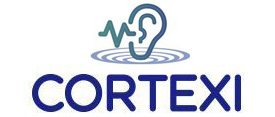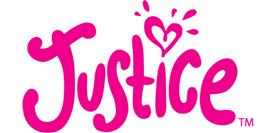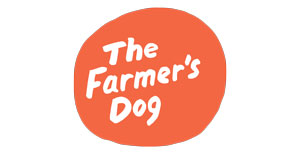
Groupon, the online marketplace that revolutionized the way people access discounts, has evolved significantly since its inception nearly 15 years ago. While it initially faced criticism for voucher redemption difficulties and quick expiration dates, Groupon has made substantial changes to improve customer satisfaction. Today, it offers a wide range of goods and services, with the assurance that even expired vouchers retain their purchase value. To help you navigate the current landscape of Groupon, whether you’re a new or returning shopper, here’s what you need to know.
What Is Groupon?
Launched in 2008, Groupon started as a platform that offered a single deal per day. Customers had to buy in a certain number of deals to activate the offer, which was available for 24 hours. Once activated, buyers received a voucher that could be redeemed later. However, the concept of group-activated deals is no longer in place. Groupon now provides vouchers for discounted goods and services that can be purchased at any time, without the need for a minimum number of buyers.
While Groupon has expanded its offerings to include a variety of goods, local deals remain a central focus. The company is dedicated to supporting local businesses and fostering community connections.

How Does Groupon Work?
If you’re like most people, you’ve probably heard of Groupon and its unique deals on both goods and services. But just how does Groupon actually work? The platform offers a wide range of discounts, coupons, and promo codes for various products and services. As you browse through the thousands of deals available, it’s important to take note of a few key points. Always read reviews before making any purchase, and pay attention to the fine print to avoid any surprises. Not all deals are created equal, so it’s important to do your research to ensure you’re getting the best possible value. Additionally, you can take advantage of promo codes and cash-back sites for even greater savings. Finally, it’s worth noting that Groupon has its pros and cons for business owners, too. Whether you’re a consumer or a business owner, understanding how Groupon works can help you make the most of this popular platform.
Both Goods and Services Are Sold on Groupon
While Groupon initially focused on vouchers for discounted services and local savings, it now offers a wide range of physical goods as well. Customers can find deals on hotels, home goods, jewelry, clothing, entertainment tickets, electronics, food, and more. Groupon’s selection is not limited by location, allowing shoppers to access deals regardless of where they reside.
Reading Reviews
When purchasing goods on Groupon, it’s advisable to check customer reviews to ensure the item matches its description on the website. For services, pay attention to red flags such as limited reviews or suspiciously low purchase numbers. To gather more information, you can view the location on Google Street View to assess the neighborhood and verify the legitimacy of the offer. If any doubts arise, confirm the deal directly with the business and reach out to Groupon if you encounter counterfeit goods or fake vouchers.
Understanding the Fine Print
Before buying any deal vouchers, carefully review the redemption requirements and terms. Always check the expiration date and be aware of any additional fees, restrictions, or limited redemption options. Some deals may have specific usage days or waiting periods before they can be used. It’s crucial to understand the refund and cancellation policy as well, especially when purchasing deals for activities that are dependent on weather or specific circumstances.
Not All Deals Are Created Equal
While Groupon used to offer deep discounts, current deals may not always be as substantial. Be cautious of inflated retail prices and always compare prices and read reviews to ensure you are getting a true deal. Avoid making impulsive purchases just because an item appears to be on sale. Only buy what you had originally planned to purchase.

 Qinux MagSecure Pro
Qinux MagSecure Pro Qinux Breazniff
Qinux Breazniff Qinux Freshpulse
Qinux Freshpulse Qinux WaterBlitz
Qinux WaterBlitz Qinux Bluecu
Qinux Bluecu Qinux 2BEE
Qinux 2BEE Qinux Telopsia
Qinux Telopsia Alpha Maax DE
Alpha Maax DE TrailVest UK
TrailVest UK BloodVitals UK
BloodVitals UK WineCork Pro
WineCork Pro CuraBall AU
CuraBall AU Cardio Slim Tea UK
Cardio Slim Tea UK TrimIQ UK
TrimIQ UK OptiSlim Weightloss BE
OptiSlim Weightloss BE Near Future Report - AI Metal
Near Future Report - AI Metal Qinux Wifinect
Qinux Wifinect Qinux BuzzBrush
Qinux BuzzBrush Qinux Vizorcam
Qinux Vizorcam Para911
Para911 GoDetox Tea
GoDetox Tea Fast Wealth
Fast Wealth Camouflage Electric Lighter
Camouflage Electric Lighter Black Electric Lighter
Black Electric Lighter Lighthaus GuardLight
Lighthaus GuardLight Horizon Scope
Horizon Scope Glacier Breeze
Glacier Breeze BuzzZapper Pro
BuzzZapper Pro ZapNado Bug Zapper
ZapNado Bug Zapper MosqiShock
MosqiShock Nano Earth Labs Keto ACV Gummies
Nano Earth Labs Keto ACV Gummies Nano Earth Labs Blood Stabilizer
Nano Earth Labs Blood Stabilizer Glokore Red Light Therapy Wraps
Glokore Red Light Therapy Wraps FurFence Dog Collar
FurFence Dog Collar Keto Max BHB Gummies
Keto Max BHB Gummies TundraFreeze Portable AC NL
TundraFreeze Portable AC NL RegenVive
RegenVive One Ticker Trader
One Ticker Trader Sleep Connection Grounding Pillow Case
Sleep Connection Grounding Pillow Case OdorCrush Laundry Ball
OdorCrush Laundry Ball Near Future Report
Near Future Report Sugar Support
Sugar Support Thunder of Zeus Gel IN
Thunder of Zeus Gel IN AI Push Button System
AI Push Button System Qinux BlackOptic
Qinux BlackOptic Qinux BrizaAC
Qinux BrizaAC Qinux JetPro Max
Qinux JetPro Max Qinux Intellens
Qinux Intellens Ultra Wave Heater
Ultra Wave Heater Quick Volt Charger
Quick Volt Charger Qinux Survbox
Qinux Survbox Qinux OceanLook
Qinux OceanLook Qinux Zeonar
Qinux Zeonar Optiloss Capsules IN
Optiloss Capsules IN The Cash Box
The Cash Box KatuChef Titanium Cutting Board
KatuChef Titanium Cutting Board SmileSlim Diet Capsules DE
SmileSlim Diet Capsules DE WellHeater AU
WellHeater AU GlucoTrust DE
GlucoTrust DE Memory Wave
Memory Wave Brain Song
Brain Song Manifest Love The Easy Way
Manifest Love The Easy Way HP9 Guard
HP9 Guard Nature's Armor
Nature's Armor Keilini TalkEase Translator Earbuds
Keilini TalkEase Translator Earbuds Crystal Restore
Crystal Restore Reality Engineering Code
Reality Engineering Code Glokore Light Therapy Face Mask
Glokore Light Therapy Face Mask BladderShield
BladderShield Sippin Burn
Sippin Burn NativePath Native Balance Magnesium
NativePath Native Balance Magnesium DeRose Health Ageless II
DeRose Health Ageless II Alka Water DIY
Alka Water DIY Yu Sleep
Yu Sleep Sciatilief
Sciatilief LuluTox
LuluTox SlimBliss
SlimBliss Prosta Peak
Prosta Peak NeuroPrime
NeuroPrime Zinc7
Zinc7 Belly Button Bliss
Belly Button Bliss ELOMAAS
ELOMAAS Glucovy
Glucovy Medvi
Medvi Glucoswitch
Glucoswitch OptiFuel
OptiFuel Female Vitality Protocol
Female Vitality Protocol ReviTag
ReviTag Prostate Max
Prostate Max SuperThin
SuperThin Sight Fresh
Sight Fresh Terra Grounding Shoes
Terra Grounding Shoes The Eggs Factory
The Eggs Factory InsuFend
InsuFend VitraFoxin
VitraFoxin Lipojaro
Lipojaro PurpleBurn Pro
PurpleBurn Pro The Healing Wave
The Healing Wave Nuubu Detox Patches
Nuubu Detox Patches CoolEase
CoolEase Fuugu
Fuugu EroXcel
EroXcel The Desire Wave
The Desire Wave John Thornhills Ambassador Program
John Thornhills Ambassador Program Urgent Millionaire Switch
Urgent Millionaire Switch Divine Supplements Eden
Divine Supplements Eden Joint Pain Hack
Joint Pain Hack Papillex
Papillex GlycoFortin
GlycoFortin GlycoBoost
GlycoBoost NailLuxe
NailLuxe SLIN Glucose Disposal
SLIN Glucose Disposal TestoGreens
TestoGreens Nervozen
Nervozen Black Falcon 4K Drone
Black Falcon 4K Drone AlphaBites
AlphaBites The Genius Switch
The Genius Switch Sacral Nectar
Sacral Nectar Pharaoh's Nectar
Pharaoh's Nectar KlickTipp
KlickTipp Lottery Increaser
Lottery Increaser Backyard Miracle Farm
Backyard Miracle Farm Patriot's Self Defense
Patriot's Self Defense Water Liberty Guide
Water Liberty Guide Nooro Grounding Mat
Nooro Grounding Mat Nomad Power System
Nomad Power System Energy Revolution System
Energy Revolution System Home Power Shield
Home Power Shield Certified Ai Jobs
Certified Ai Jobs Feel Good Knees
Feel Good Knees Matsato Chef Knife
Matsato Chef Knife LottoChamp
LottoChamp VigorLong
VigorLong TruVarin
TruVarin Air Serbia
Air Serbia Pineal Pure
Pineal Pure SlimSolve
SlimSolve Goliath XL10
Goliath XL10 Pineal Guard
Pineal Guard Performer 8
Performer 8 Tivano Cutting Board
Tivano Cutting Board Sportsman's Warehouse
Sportsman's Warehouse Leptozan
Leptozan Wellnee
Wellnee HepatoBurn
HepatoBurn VitaSeal
VitaSeal SciatiEase
SciatiEase Derma Clear
Derma Clear Slimjaro
Slimjaro Stratos
Stratos MindQuell
MindQuell Nu Nerve
Nu Nerve VivoGut
VivoGut Welnax BioClear
Welnax BioClear Neuro Surge
Neuro Surge LungExpand Pro
LungExpand Pro Breathe Lung Drops
Breathe Lung Drops Dreamzy Fluff Pillow
Dreamzy Fluff Pillow Moringa
Moringa Mondly
Mondly Arialief
Arialief CityPass San Diego
CityPass San Diego Sightseeing Pass
Sightseeing Pass iHerb
iHerb TonePro
TonePro Glyco Forte Blood Pressure
Glyco Forte Blood Pressure Prostate 911
Prostate 911 Wellamoon Sleep Patches
Wellamoon Sleep Patches EnergyFix FR
EnergyFix FR SAINT’SKIN Vitamin C Serum AU
SAINT’SKIN Vitamin C Serum AU ErectoninMD
ErectoninMD Nidra Abundance Code
Nidra Abundance Code 8th Chakra Code
8th Chakra Code Deep Flow Code
Deep Flow Code FreeWave Antenna DE
FreeWave Antenna DE Slimtrenix
Slimtrenix Tetherly WiFi
Tetherly WiFi Blood Prime
Blood Prime Enway Smart Door
Enway Smart Door Burn Plus DE
Burn Plus DE Green Regimen Kiwi Optimize
Green Regimen Kiwi Optimize Arthro MD+ CA
Arthro MD+ CA Trump “Fight! Fight! Fight!” Bobblehead
Trump “Fight! Fight! Fight!” Bobblehead Ring Quiet Plus
Ring Quiet Plus LeanCaps SE
LeanCaps SE ZentraSlim UK
ZentraSlim UK Supra Keto BHB + ACV Gummies NZ
Supra Keto BHB + ACV Gummies NZ Ever Joint
Ever Joint Trump Survivor Coin
Trump Survivor Coin Gator Vest
Gator Vest SlimWaist DE
SlimWaist DE SlimMe Detox Tea
SlimMe Detox Tea NiteHush Pro
NiteHush Pro Fitify Diet Capsules SE
Fitify Diet Capsules SE Shape Up Diet Capsules DK
Shape Up Diet Capsules DK Quick Fix Synthetic
Quick Fix Synthetic FeetFinder
FeetFinder Hendershot Power Generator
Hendershot Power Generator HydroHero
HydroHero AutoBrush
AutoBrush Autobrush For Kids
Autobrush For Kids OptiBlend Keto
OptiBlend Keto Sugar Shield Blood Support
Sugar Shield Blood Support RingClear
RingClear PhenQ
PhenQ True Form Posture Corrector
True Form Posture Corrector BurnYX Super Coffee
BurnYX Super Coffee EvoStep Insoles AU
EvoStep Insoles AU Guardian Botanicals Blood Balance ZA
Guardian Botanicals Blood Balance ZA Keto Base BE
Keto Base BE Prime Biome
Prime Biome Keto Plus Gummies BE
Keto Plus Gummies BE Keto Power Gummies DK
Keto Power Gummies DK Keto Power Capsules SE
Keto Power Capsules SE TikTok Booster by Zed DE
TikTok Booster by Zed DE SlimSure FI
SlimSure FI GlucoFit UK
GlucoFit UK Glyco Care CA
Glyco Care CA Golden Revive
Golden Revive Biden's Revenge
Biden's Revenge Heatwell CA
Heatwell CA WinterGlide Pro
WinterGlide Pro Lumiglass
Lumiglass Flash Burn
Flash Burn Cetadusse
Cetadusse Essence Of Argan
Essence Of Argan ProstaLite
ProstaLite Nerve Defend
Nerve Defend Black Wood Tea
Black Wood Tea Critical T
Critical T Pineal Abundance Boost
Pineal Abundance Boost Neuro Fortis PRO
Neuro Fortis PRO MAGA Memory
MAGA Memory Breathing For Sleep
Breathing For Sleep Tube Magic
Tube Magic Light Therapy Facial-X7
Light Therapy Facial-X7 Advanced Mitochondrial Formula
Advanced Mitochondrial Formula Respilean
Respilean DentaSmilePro
DentaSmilePro Nerve Armor
Nerve Armor AppaNail
AppaNail Vertigenics
Vertigenics VirilWood
VirilWood Ground Power Generator
Ground Power Generator SugarRenew
SugarRenew Whispeara
Whispeara GumAktiv
GumAktiv RevivaGlow
RevivaGlow Flat Belly Flush
Flat Belly Flush Enki Elixir
Enki Elixir InstaDoodle
InstaDoodle Soul Gaze Sketch
Soul Gaze Sketch GlucoTrust FR
GlucoTrust FR Glucotonic
Glucotonic The Money Script
The Money Script Astral Treasury
Astral Treasury Divine Overflow
Divine Overflow Nebula Reserve
Nebula Reserve The Anointed Path
The Anointed Path Nicoya PuraTea
Nicoya PuraTea Unlock The Scrambler
Unlock The Scrambler MitoThrive
MitoThrive BioEnergy Code
BioEnergy Code GlycoAid
GlycoAid HydroLean XT
HydroLean XT Total Control 24
Total Control 24 CARBOFIRE
CARBOFIRE Aqua Tower
Aqua Tower SeroBurn
SeroBurn Deep Sleep Diabetes Remedy
Deep Sleep Diabetes Remedy Sonu's Diabetes Secret
Sonu's Diabetes Secret The Hydrogen Switch
The Hydrogen Switch Non Alcoholic Fatty Liver Disease Solution NAFLD
Non Alcoholic Fatty Liver Disease Solution NAFLD Flush Factor Plus
Flush Factor Plus Wrap Him Around Your Finger
Wrap Him Around Your Finger 9D Breathwork
9D Breathwork FemiPro
FemiPro Bark Begone Pet Trainer
Bark Begone Pet Trainer ActiveTrack Pro
ActiveTrack Pro West Wolf Medicinals
West Wolf Medicinals Healix Insoles DE
Healix Insoles DE Omily Sleep Well Gummies
Omily Sleep Well Gummies Cloedar PodFlexx
Cloedar PodFlexx LifeLine 365 Blood Health Balance
LifeLine 365 Blood Health Balance Slimberine
Slimberine Stellar Heat
Stellar Heat Gluco Extend
Gluco Extend Gluco Ally
Gluco Ally Qinux BarkBuz
Qinux BarkBuz Qinux WonBreth
Qinux WonBreth Qinux Brackie TV
Qinux Brackie TV Qinux BatForce LX
Qinux BatForce LX Keto Flow + ACV NZ
Keto Flow + ACV NZ SpeedTech WiFi
SpeedTech WiFi PanePro 3-in-1 AU
PanePro 3-in-1 AU HeatGuard Vest AU
HeatGuard Vest AU Heaven's Favor
Heaven's Favor Pymander Wealth Script
Pymander Wealth Script God's Sacred Promise
God's Sacred Promise The Grace Shield
The Grace Shield Universal Wealth Frequency
Universal Wealth Frequency The Covenant Blessing
The Covenant Blessing The Miracle Wave
The Miracle Wave Aura Ring DE
Aura Ring DE Sync Wrist
Sync Wrist Vegetarian Diet-to-Go
Vegetarian Diet-to-Go LivFresh
LivFresh Grounded Footwear Barefoot Shoes
Grounded Footwear Barefoot Shoes Drive Bright
Drive Bright Zappify AU
Zappify AU Clear Sleep
Clear Sleep VolteX Heated Scarf
VolteX Heated Scarf Pranamat
Pranamat Mitolyn
Mitolyn The Lost Generator
The Lost Generator PureInSole DE
PureInSole DE Eco Energy Saver
Eco Energy Saver EcoWatt Power Saver
EcoWatt Power Saver Glycogen Plus+ DE
Glycogen Plus+ DE HeatGuard Heating Gloves
HeatGuard Heating Gloves HeatGuard Socks
HeatGuard Socks NeckBreeze DE
NeckBreeze DE MoonScope Monocular DE
MoonScope Monocular DE PureFeet Detox Patches
PureFeet Detox Patches BlendIt DE
BlendIt DE NanoKlean DE
NanoKlean DE Vision Guard Pro
Vision Guard Pro NeuroQuiet
NeuroQuiet Rose Quartz Pure Guasha UK
Rose Quartz Pure Guasha UK Phen24 IT
Phen24 IT Club House Wood
Club House Wood AirCurl
AirCurl Peak Wellness Berberine
Peak Wellness Berberine Peak Wellness
Peak Wellness SlimDefine Face Massager
SlimDefine Face Massager Glyco Control Plus Berberine HCL CH
Glyco Control Plus Berberine HCL CH StormFlame Pro
StormFlame Pro Monster XL SE
Monster XL SE Vitocell DE
Vitocell DE Erectax Testosterone Boost FR
Erectax Testosterone Boost FR Extreme Male Enhancement
Extreme Male Enhancement Gluco Guard Pro
Gluco Guard Pro Maha Pure
Maha Pure HomePro Essentials Portable Tire Inflator
HomePro Essentials Portable Tire Inflator ActiveGlide Headphones
ActiveGlide Headphones UVY Clean
UVY Clean Infiniti Ring
Infiniti Ring TheraFoot Pro
TheraFoot Pro AirWave Defender
AirWave Defender Kensuru AU
Kensuru AU Portable Air Purifier AU
Portable Air Purifier AU StarGlide Fly Ball
StarGlide Fly Ball ThermoStorm
ThermoStorm Max Flex Core
Max Flex Core Aerolift
Aerolift AstroNight UK
AstroNight UK Ketolicious Keto + ACV Gummies
Ketolicious Keto + ACV Gummies DigHero RC Excavator AU
DigHero RC Excavator AU AlphaBlu Chews Male Enhancement Gummies
AlphaBlu Chews Male Enhancement Gummies Glucozen Glucose Support Gummies
Glucozen Glucose Support Gummies Vigora XL DE
Vigora XL DE Steel Flow Pro
Steel Flow Pro HushInSoles ES
HushInSoles ES SizeMD+ LU
SizeMD+ LU Comprex Ankle Sleeves DE
Comprex Ankle Sleeves DE Mute Tape
Mute Tape Pure SilkSkin IPL Hair Removal UK
Pure SilkSkin IPL Hair Removal UK Comprex Wrist
Comprex Wrist PawStruck Smart Food Bowl UK
PawStruck Smart Food Bowl UK BP Guardian
BP Guardian Operation Blackout
Operation Blackout Fitex DE
Fitex DE PhenoMan Male Enhancement Gummies CH FR
PhenoMan Male Enhancement Gummies CH FR Erect Brain FR
Erect Brain FR Cafe Slim Shot FR
Cafe Slim Shot FR Easy Slim DE
Easy Slim DE Life Heater DE
Life Heater DE Revelation Health
Revelation Health True Cellular Formulas
True Cellular Formulas Volt Saver
Volt Saver Patriot RiseUp
Patriot RiseUp Clear Vision Pro Max DE
Clear Vision Pro Max DE Dreamease
Dreamease Top Heat
Top Heat Glyco Balance Glycogen Control NZ
Glyco Balance Glycogen Control NZ Manhood Plus Gummies CH
Manhood Plus Gummies CH SootheSmart
SootheSmart RejuMask LED Mask AT
RejuMask LED Mask AT My Biothrive Peak Ketosis Keto + ACV Gummies
My Biothrive Peak Ketosis Keto + ACV Gummies Leanix SE
Leanix SE ProstaVive
ProstaVive Dominator Maxxx Male Enhancement Gummies NZ
Dominator Maxxx Male Enhancement Gummies NZ ManPower NZ
ManPower NZ Pure Slim X BE
Pure Slim X BE QuikHeat Pro FR
QuikHeat Pro FR GoGo Heater
GoGo Heater Libonex
Libonex NutriFlex UK
NutriFlex UK DreamHero MouthGuard
DreamHero MouthGuard NunaWave Mini Wands
NunaWave Mini Wands QuadAir4K Drone
QuadAir4K Drone BrainSync
BrainSync Echo labs Audio Earbuds
Echo labs Audio Earbuds Qinux PlastyX
Qinux PlastyX Qinux WaxiClean
Qinux WaxiClean FocusPro Glasses
FocusPro Glasses Eye Health
Eye Health Dentavim
Dentavim MD Exam Prescription Weightloss
MD Exam Prescription Weightloss HikeGrip Pro
HikeGrip Pro Qinux Binfar
Qinux Binfar Qinux BlisDry Pro
Qinux BlisDry Pro Flexafen
Flexafen The Back Pain Miracle
The Back Pain Miracle Cherry Goodness Tart Cherry Plus
Cherry Goodness Tart Cherry Plus NeuroPeak
NeuroPeak Icelandic Red Algae Calcium
Icelandic Red Algae Calcium VigRX Nitric Oxide
VigRX Nitric Oxide Dermefface FX 7 by Skinception
Dermefface FX 7 by Skinception CalmLean
CalmLean Air Fountain
Air Fountain Air Wave Defender
Air Wave Defender Lion's Mane Gummies
Lion's Mane Gummies Alpha Strength
Alpha Strength Clear Brain & Mood
Clear Brain & Mood DiamondSmile
DiamondSmile FlexiGenics
FlexiGenics KINETIC Power System
KINETIC Power System Poundless
Poundless Mammoth Green Energy
Mammoth Green Energy Roar Lions Mane
Roar Lions Mane Quantum Manifest A.I.
Quantum Manifest A.I. Ryoku EMS Foot Massage Mat AU
Ryoku EMS Foot Massage Mat AU Ryoku Mini Massage Gun AU
Ryoku Mini Massage Gun AU Blue Steel Gummies
Blue Steel Gummies Trichofol
Trichofol Ultra Prosta Care
Ultra Prosta Care EZ Scrub Pro
EZ Scrub Pro Tasty Gains Creatine Gummies
Tasty Gains Creatine Gummies Light Socket Security Camera
Light Socket Security Camera Ryan's Shed Plans
Ryan's Shed Plans Renew Dental Support
Renew Dental Support FluffCo Zen Pillow
FluffCo Zen Pillow Guardian Monitor AU
Guardian Monitor AU VisiPure
VisiPure Max Boost Plus
Max Boost Plus Keego Blinds
Keego Blinds Elementor
Elementor Bjorn Borg
Bjorn Borg Ashimary
Ashimary Allies of Skin
Allies of Skin AirHeat AT
AirHeat AT Neural Wealth
Neural Wealth Melio
Melio Breathe Clean Mite Bites ID
Breathe Clean Mite Bites ID Fitnus 2.0 Smartwatch
Fitnus 2.0 Smartwatch Voltron Power Saver
Voltron Power Saver AirJoi Cooler
AirJoi Cooler AirJoi Laundry Sheets
AirJoi Laundry Sheets NervoVive
NervoVive Nerve Revive 360
Nerve Revive 360 Power Pal Power Banks
Power Pal Power Banks Qinux GlowLed
Qinux GlowLed Qinux HaloxVit
Qinux HaloxVit Glucovate Glycogen Support
Glucovate Glycogen Support PowrFlex Charger AT
PowrFlex Charger AT RenewRitual
RenewRitual TrimTone
TrimTone ElectroSlim
ElectroSlim Proper Keto BHB Capsules IE
Proper Keto BHB Capsules IE Fitnus Socks
Fitnus Socks PowerSnapz
PowerSnapz Eagle Eye Dash Camera
Eagle Eye Dash Camera Mega Heater
Mega Heater EarDrops
EarDrops Lifeguard Shield Fire Blanket
Lifeguard Shield Fire Blanket Fitnus Brace
Fitnus Brace Gluco Defender CA
Gluco Defender CA AirJoi Zapper
AirJoi Zapper Nano Flash Secure USB Flash Drives
Nano Flash Secure USB Flash Drives Qinux PlayerLux
Qinux PlayerLux KeySlim Drops
KeySlim Drops Illuminova
Illuminova Fox V2
Fox V2 Rapid Acquisition Offset Sight
Rapid Acquisition Offset Sight Breathe Clean Charcoal Bags DK
Breathe Clean Charcoal Bags DK Sync
Sync Oil Change Coupons
Oil Change Coupons Mountain Hardwear
Mountain Hardwear VeeloSlim Asia
VeeloSlim Asia Belly Balance NZ
Belly Balance NZ FunnyFuzzy
FunnyFuzzy Countrywide Concealed Online
Countrywide Concealed Online CamHandy Dash Cam
CamHandy Dash Cam Auto Air Pump
Auto Air Pump SnoreAway
SnoreAway SonicGlow Pick
SonicGlow Pick SonicGlow Brush
SonicGlow Brush Wirext Wifi Booster
Wirext Wifi Booster Qinux DarkFury 5K
Qinux DarkFury 5K Essential Keto Gummies CA FR
Essential Keto Gummies CA FR Qinux Multex
Qinux Multex WunderCool Light Socket Fan
WunderCool Light Socket Fan IceBox Air Cooler
IceBox Air Cooler Qinux Zentry FG
Qinux Zentry FG Footy Massager Carpet
Footy Massager Carpet Wamoma Smart Thermometer
Wamoma Smart Thermometer Manup Male Enhancement Gummies CA
Manup Male Enhancement Gummies CA Qinux SoliGlo
Qinux SoliGlo Qinux PrintPixy
Qinux PrintPixy Synoshi Spin Power Scrubber
Synoshi Spin Power Scrubber Deck of Destiny
Deck of Destiny Snortium
Snortium Qinux VitalFit
Qinux VitalFit CoolSwing
CoolSwing Canna Plus CBD Gummies UK
Canna Plus CBD Gummies UK Youthful Dermlogix Skin Tag Solution
Youthful Dermlogix Skin Tag Solution VibeBuds
VibeBuds Tactical Flashlight
Tactical Flashlight LifeWater
LifeWater LifeHammer AU
LifeHammer AU People's Keto Gummies DK
People's Keto Gummies DK Qinux CamZoom
Qinux CamZoom UltraXTend
UltraXTend Slim Boost Tea
Slim Boost Tea The Last Blackout
The Last Blackout HempSmart Hemp Gummies CA
HempSmart Hemp Gummies CA Qinux BlueTunex
Qinux BlueTunex SlimXmed DE
SlimXmed DE SafeAlarm
SafeAlarm iFitness Pro
iFitness Pro Qinux Stellarix
Qinux Stellarix Qinux HeartBix
Qinux HeartBix Qinux Firextin
Qinux Firextin TruBody ACV Keto Gummies
TruBody ACV Keto Gummies CleanPacs All Purpose Cleaner
CleanPacs All Purpose Cleaner Fitnus Sleeve
Fitnus Sleeve Blood Sugar Complete
Blood Sugar Complete Herpafend
Herpafend DigestSync
DigestSync The Pharaoh's Secret
The Pharaoh's Secret Pineal Guardian
Pineal Guardian Nitric Boost
Nitric Boost CarPlay Adapter
CarPlay Adapter Bralloon
Bralloon Y-Bra
Y-Bra LuxBra
LuxBra Nerve Fresh
Nerve Fresh HempSmart Hemp Gummies Israel
HempSmart Hemp Gummies Israel Trump Keep Fighting Bobblehead
Trump Keep Fighting Bobblehead Trump 2024 Fighting For America Gold Coin
Trump 2024 Fighting For America Gold Coin Trump Vance 2024 Trading Card
Trump Vance 2024 Trading Card Gaze Nutra SpineVivo UK
Gaze Nutra SpineVivo UK Qinux Cleanza
Qinux Cleanza Qinux Nebulify
Qinux Nebulify Qinux PockPrix
Qinux PockPrix Trump Mugshot & Stand Strong Trading Card Bundle
Trump Mugshot & Stand Strong Trading Card Bundle RX Slim Care
RX Slim Care Gaze Nutra SpineVivo
Gaze Nutra SpineVivo HawkEye Night Driving Glasses
HawkEye Night Driving Glasses Capsiplex Burn vs Trim CA
Capsiplex Burn vs Trim CA Online Cash Machine
Online Cash Machine Animale Male Enhancement Capsules ZA
Animale Male Enhancement Capsules ZA Qinux Leshtrim
Qinux Leshtrim CareSole Circa Knee
CareSole Circa Knee Prelox Enhanced Sex
Prelox Enhanced Sex Fitnus Neuromat
Fitnus Neuromat Culco Fix Glycogen Support
Culco Fix Glycogen Support Bubble Blast
Bubble Blast BP Zone
BP Zone Blood Sugar Premier
Blood Sugar Premier Easy Sealer
Easy Sealer Electrapy
Electrapy Lipozem
Lipozem MCG Tactical Sonar UltraEars Headphones
MCG Tactical Sonar UltraEars Headphones Easy-Tape
Easy-Tape Omega Plus Krill
Omega Plus Krill Qinux Militar ST
Qinux Militar ST Qinux Bladexfan
Qinux Bladexfan Vision 20
Vision 20 Joint n-11
Joint n-11 Longevity Activator
Longevity Activator Trump Fight Fight Fight T-Shirt
Trump Fight Fight Fight T-Shirt Nano C High Absorption Vitamin C Booster
Nano C High Absorption Vitamin C Booster The Sacred Hymn
The Sacred Hymn The Jesus Coin
The Jesus Coin The Money Wave
The Money Wave Supranail
Supranail Youtube Mastery
Youtube Mastery The Cat Language Bible
The Cat Language Bible The Solar Innovator
The Solar Innovator The Infinite Energy System
The Infinite Energy System Wing Girl Secrets Of Seducing Women
Wing Girl Secrets Of Seducing Women The Awakening Course
The Awakening Course MetaTrader 5 Programming Masterclass
MetaTrader 5 Programming Masterclass Norwegian Course for Beginners: The Mystery of Nils
Norwegian Course for Beginners: The Mystery of Nils Smartphone Filmmaking Pro
Smartphone Filmmaking Pro Unlock Your Body
Unlock Your Body 301K Challenge
301K Challenge Kevin Bludso BBQ Cooking Class
Kevin Bludso BBQ Cooking Class VenoPlus 8
VenoPlus 8 Curafen - Turmeric
Curafen - Turmeric Skout Organic
Skout Organic VIP Indicators
VIP Indicators Zotrim
Zotrim UltraLink 4K TV Antenna
UltraLink 4K TV Antenna NovaWave Antenna
NovaWave Antenna Polar Cooling
Polar Cooling Timeless Beauty
Timeless Beauty Skinny Signal
Skinny Signal Hydrossential
Hydrossential Visium Plus
Visium Plus Reversirol
Reversirol Shifting Vibrations
Shifting Vibrations Floralite
Floralite ProstateFlux
ProstateFlux RevaSlim
RevaSlim Primordial Vigor X
Primordial Vigor X Energize Brew
Energize Brew Clear Nails Max
Clear Nails Max Nano Boom Speaker
Nano Boom Speaker FitSmart BE
FitSmart BE NeuralExcellence
NeuralExcellence Qinux Wakersun
Qinux Wakersun Qinux BityBox 2.0
Qinux BityBox 2.0 FreshAir Pro
FreshAir Pro Moringa Magic
Moringa Magic Odds Oracle
Odds Oracle Green Glucose
Green Glucose Ozempic Coupons
Ozempic Coupons Regal Movie Tickets Coupons
Regal Movie Tickets Coupons Chuck E. Cheese Coupons
Chuck E. Cheese Coupons Jiffy Lube Coupons
Jiffy Lube Coupons Valvoline Coupon
Valvoline Coupon Buzz Blast Pro
Buzz Blast Pro HearingAid Max
HearingAid Max Free Sugar Pro
Free Sugar Pro Exodus Effect
Exodus Effect Plantsulin
Plantsulin Private MD Labs
Private MD Labs Endurance
Endurance Light Therapy X
Light Therapy X CelluCare
CelluCare Sylvane
Sylvane The Wealth Signal
The Wealth Signal NeuroActiv6
NeuroActiv6 WheelHero
WheelHero Chromo Wealth
Chromo Wealth PuroAir
PuroAir MosquitoZap
MosquitoZap FootScape EMS Foot Massager
FootScape EMS Foot Massager ESaver Watt
ESaver Watt MyBreeze Neck Cooling Fan
MyBreeze Neck Cooling Fan Pelvic Floor Strong System
Pelvic Floor Strong System ClubHouse Fire
ClubHouse Fire ClubHouse Stud
ClubHouse Stud Vitauthority Fiber Fix
Vitauthority Fiber Fix Beyond Osteo
Beyond Osteo Fitnus Neurostim
Fitnus Neurostim Keton Aktiv
Keton Aktiv Force Factor Test X180 Boost
Force Factor Test X180 Boost Malkko Prostapure Advantage
Malkko Prostapure Advantage Vigor Plux
Vigor Plux Uqalo Sadoer
Uqalo Sadoer Qinux Ironcex
Qinux Ironcex The Truth In Your Stars
The Truth In Your Stars InvigoRise
InvigoRise SkinnyRx - Semaglutide
SkinnyRx - Semaglutide Nootrogreens
Nootrogreens TitanFlow
TitanFlow Tundra Freeze
Tundra Freeze Blood Sugar Capsules
Blood Sugar Capsules Zap Guardian
Zap Guardian Gluco Cleanse Tea
Gluco Cleanse Tea ChillWell Wearable - Portable AC
ChillWell Wearable - Portable AC CareSole
CareSole Jay Cutler's Ampify 2.0
Jay Cutler's Ampify 2.0 Audien Hearing
Audien Hearing Dermaclara
Dermaclara Vitacup Protein Coffee
Vitacup Protein Coffee Halara
Halara Mitoburn
Mitoburn Onnit Alpha Brain
Onnit Alpha Brain Diabetes Freedom
Diabetes Freedom Stimula Blood Sugar
Stimula Blood Sugar GlucoTrim
GlucoTrim Gluco Premium
Gluco Premium Gluco6
Gluco6 Gaia's Protocol
Gaia's Protocol FarmFoods
FarmFoods Synoshi
Synoshi Grill Well 2.0 - Rolling Grill Basket
Grill Well 2.0 - Rolling Grill Basket Ultra Air Heater
Ultra Air Heater BarxBuddy
BarxBuddy Ultra Air Cooler
Ultra Air Cooler Keilini
Keilini Electrifly Bug Zapper Racket
Electrifly Bug Zapper Racket TribalForce X
TribalForce X ProHealth
ProHealth Livlean
Livlean InVideo
InVideo Navan
Navan The Genesis Code + Survival Seed Vault
The Genesis Code + Survival Seed Vault Insta Soothe
Insta Soothe Elon Badge
Elon Badge GlucoPure
GlucoPure Sonos
Sonos JustFoodForDogs
JustFoodForDogs Fiverr
Fiverr LoveBook
LoveBook CogniCare Pro
CogniCare Pro Neon Champ
Neon Champ Lumen
Lumen SunRider
SunRider Leptofix
Leptofix BugMD
BugMD Night Vision Pro
Night Vision Pro ChillWell 2.0
ChillWell 2.0 Steelcase Store
Steelcase Store Tina Psychic Soulmate Sketch
Tina Psychic Soulmate Sketch Kerafen
Kerafen Jennifer Furniture
Jennifer Furniture Semaglutide Online
Semaglutide Online Knee Pain Relief
Knee Pain Relief Flex Focus
Flex Focus Hidragenix
Hidragenix Prostapure Advantage
Prostapure Advantage Eagle Eye X20
Eagle Eye X20 VisiPrime
VisiPrime Herpesyl
Herpesyl Fungus Defend
Fungus Defend Clarisil Pro
Clarisil Pro Gluco Proven
Gluco Proven Life Line Screening
Life Line Screening GoGo Blendit
GoGo Blendit Blissy Silk Pillowcase
Blissy Silk Pillowcase Luxe Serena
Luxe Serena Soulmate Story
Soulmate Story Forward Head Posture FIX
Forward Head Posture FIX StopWatt
StopWatt Funded Trading Plus
Funded Trading Plus Airmoto
Airmoto Buzz Defender Pro
Buzz Defender Pro Potent Stream
Potent Stream Safetrack Wallet
Safetrack Wallet Personalabs
Personalabs Living DNA
Living DNA TestClear.com
TestClear.com TestNegative.com
TestNegative.com Bliss Keto + ACV Gummies
Bliss Keto + ACV Gummies Energeia
Energeia Lottery Defeater Software
Lottery Defeater Software Fit Flare Keto + ACV Gummies
Fit Flare Keto + ACV Gummies NexaSlim
NexaSlim Bladder Relief 911
Bladder Relief 911 Nerve Control 911
Nerve Control 911 NanoDefense Pro
NanoDefense Pro BerbaPrime
BerbaPrime KeraBiotics
KeraBiotics Gluco Shield Pro
Gluco Shield Pro Vitauthority
Vitauthority ZenCortex
ZenCortex GutOptim
GutOptim Skinny Love
Skinny Love ProstaBiome
ProstaBiome Gluco Alert
Gluco Alert Provadent
Provadent SlimPulse
SlimPulse GlucoFreedom
GlucoFreedom Activated You
Activated You Gundry MD
Gundry MD Try ACV Gummy
Try ACV Gummy Alpha Drive
Alpha Drive ArcticBlast
ArcticBlast Innovet Pet Products
Innovet Pet Products Ted Baker
Ted Baker ReflexMD
ReflexMD Growth Matrix
Growth Matrix Type2Defense
Type2Defense SeriSkin
SeriSkin BattlBox
BattlBox ProNervium
ProNervium Real White Teeth Whitening System
Real White Teeth Whitening System Detoxall 17
Detoxall 17 Crypto Quantum Leap
Crypto Quantum Leap CerebroZen
CerebroZen Bioma Probiotics
Bioma Probiotics Mavis Tires and Brakes
Mavis Tires and Brakes Noom
Noom LeptiCell
LeptiCell Purple
Purple ProNerve6
ProNerve6 Balmorex
Balmorex NeuroPure
NeuroPure GetResponse
GetResponse TruWild
TruWild Harmony Gel Cap
Harmony Gel Cap Prepared Hero Fire Blanket
Prepared Hero Fire Blanket Tinnitus911
Tinnitus911 KaTom
KaTom PaternityLab
PaternityLab SamBoat
SamBoat DrHouse
DrHouse Naomi Whittel
Naomi Whittel Elm & Rye
Elm & Rye Renew
Renew La Roche-Posay
La Roche-Posay Roundhouse Provisions Morning Kick
Roundhouse Provisions Morning Kick CitruLift
CitruLift BioLean
BioLean Framebridge
Framebridge Byte Aligners
Byte Aligners Silencil
Silencil Inc Authority
Inc Authority ProSolution Plus
ProSolution Plus Mycosyn Pro
Mycosyn Pro Derma Prime Plus
Derma Prime Plus Final Famine
Final Famine Raspberry Ketone Max
Raspberry Ketone Max Twin Elements CBD Gummies
Twin Elements CBD Gummies Primal Labs Advanced Nerve Support
Primal Labs Advanced Nerve Support Bliss Skin Tag Remover
Bliss Skin Tag Remover Menophix
Menophix PureLumin Essence
PureLumin Essence Glucotil
Glucotil Cardio Shield
Cardio Shield Trans-Resveratrol
Trans-Resveratrol GL90 Blood Sugar Support
GL90 Blood Sugar Support Keravita
Keravita Home Doctor
Home Doctor DentiCore
DentiCore Zeneara
Zeneara Toxipure
Toxipure Kiehl's
Kiehl's PhenGold
PhenGold ZQuiet
ZQuiet Sight Care
Sight Care Boostaro
Boostaro Fitspresso
Fitspresso Colon Broom Premium
Colon Broom Premium Seven Turmeric Curcumin
Seven Turmeric Curcumin Sermorelin
Sermorelin LipoSlend
LipoSlend AeroSlim
AeroSlim ProNail Complex
ProNail Complex Forti Prime
Forti Prime GS-85
GS-85 GlucoFlush
GlucoFlush Gluco Relief
Gluco Relief FoliPrime
FoliPrime Revive Daily
Revive Daily Bright Swimwear
Bright Swimwear Quickbooks Payroll
Quickbooks Payroll Alpha Xtra Boost
Alpha Xtra Boost VolcaBurn
VolcaBurn Burn Boost
Burn Boost Ageless Knees
Ageless Knees Flexotone
Flexotone Acidaburn
Acidaburn Divine Invocation Code
Divine Invocation Code ReFirmance
ReFirmance Berber Vitality Argan Oil Serum
Berber Vitality Argan Oil Serum Citruna
Citruna CircadiYin
CircadiYin TruthFinder
TruthFinder Quick Fit
Quick Fit ANTI TAR TripleGuard
ANTI TAR TripleGuard Keto ACV Gummies
Keto ACV Gummies Flat Belly Melts
Flat Belly Melts GOAT Stamina
GOAT Stamina Lipid Control Plus
Lipid Control Plus Meltamin
Meltamin NuviaLab Flex
NuviaLab Flex Night Mega Burner
Night Mega Burner Bravona Forte
Bravona Forte Semaxin
Semaxin African Mango
African Mango Probiosin Plus
Probiosin Plus Piperinox
Piperinox Varicorin
Varicorin Zinamax
Zinamax NuviaLab Immune
NuviaLab Immune NuviaLab Sugar Control
NuviaLab Sugar Control LactiFresh Gel
LactiFresh Gel NuviaLab Female Fertility
NuviaLab Female Fertility Prostan Plus
Prostan Plus GigantX
GigantX Revamin Stretch Mark
Revamin Stretch Mark The Stress-Free Golf Swing
The Stress-Free Golf Swing Restilen
Restilen Profolan
Profolan Triple BP Protection
Triple BP Protection Triple Liver Health
Triple Liver Health Triple Metabolism Formula
Triple Metabolism Formula Triple Testo Boost
Triple Testo Boost Triple Joint Health
Triple Joint Health Triple Prosta Flow
Triple Prosta Flow Triple Cognigen
Triple Cognigen Triple Nerve Shield
Triple Nerve Shield Triple Anti-Aging Cream
Triple Anti-Aging Cream Triple Euphoric Pro
Triple Euphoric Pro Triple Metabo-Greens
Triple Metabo-Greens Camojojo
Camojojo Xcaret
Xcaret Reebok
Reebok BannerBuzz
BannerBuzz Best Of Signs
Best Of Signs British Supplements
British Supplements Triple Keto
Triple Keto Triple Fungus Blast
Triple Fungus Blast Triple Blood Balance
Triple Blood Balance Triple Collagen
Triple Collagen Triple ACV Gummies
Triple ACV Gummies GrowTH Gummies
GrowTH Gummies Triple Nature's Sleep
Triple Nature's Sleep Triple Tinnitus Formula
Triple Tinnitus Formula Triple Vision
Triple Vision Folixine
Folixine MetaZyne
MetaZyne Clavusin
Clavusin MemoSurge
MemoSurge LeanFlux
LeanFlux Grow Max Pro
Grow Max Pro Male Dominator
Male Dominator HimEros
HimEros Ultra Prosta-Fix
Ultra Prosta-Fix Sumatra Slim Belly Tonic
Sumatra Slim Belly Tonic Nagano Lean Body Tonic
Nagano Lean Body Tonic Patiowell
Patiowell Home Title Lock
Home Title Lock ZWILLING
ZWILLING LavaSlim
LavaSlim Synergex 7
Synergex 7 ProstaMend
ProstaMend Cognilux
Cognilux RingHush
RingHush Sleep Guard Plus
Sleep Guard Plus Sugar Defender
Sugar Defender Vitahear Plus
Vitahear Plus Curalin
Curalin Billionaire Bioscience Code
Billionaire Bioscience Code Royal Wealth Hack
Royal Wealth Hack Gluco Care
Gluco Care Gluco 24
Gluco 24 Dentafend
Dentafend Cavityn
Cavityn Heally
Heally BigSpy
BigSpy Spartan Home Fitness
Spartan Home Fitness Spinal Force
Spinal Force Powerful Pharaoh
Powerful Pharaoh Pawbiotix
Pawbiotix DentaTonic
DentaTonic Omyum SuperNatural
Omyum SuperNatural MycoSoothe
MycoSoothe Vision Premium
Vision Premium Perfect Flush
Perfect Flush Awaken XT
Awaken XT Vital Flex Core - Ab Stimulator
Vital Flex Core - Ab Stimulator EyeFortin
EyeFortin LIBERATORX2
LIBERATORX2 LeanBliss
LeanBliss SeroLean
SeroLean Illuderma
Illuderma NeuroZoom
NeuroZoom Cleanse Premium
Cleanse Premium BioPls Slim Pro
BioPls Slim Pro Revisil
Revisil Keratone
Keratone Puralean
Puralean Ageless Body System Super C Serum
Ageless Body System Super C Serum Pocket Option
Pocket Option Travelex Insurance
Travelex Insurance Gamivo.com
Gamivo.com Boxbollen
Boxbollen JCPenney Portraits
JCPenney Portraits Leesa
Leesa The Genius Wave
The Genius Wave The Divine Prayer
The Divine Prayer Neuro-Thrive
Neuro-Thrive PandaHall.com
PandaHall.com Gabriel & Co
Gabriel & Co Get Maine Lobster
Get Maine Lobster Rug Source
Rug Source Rachel Riley
Rachel Riley Schweitzer Linen
Schweitzer Linen Verma Farms
Verma Farms The CE Shop
The CE Shop Robosen
Robosen Green Chef
Green Chef Harry Rosen
Harry Rosen ContactsDirect
ContactsDirect TeamViewer
TeamViewer Sonder
Sonder Ghirardelli
Ghirardelli Condor
Condor Vine Oh!
Vine Oh! 360Training
360Training VAIO
VAIO Savage X Fenty
Savage X Fenty ShoeDazzle
ShoeDazzle Happy Head
Happy Head Beflo
Beflo Alpha Heater
Alpha Heater Splash Wines
Splash Wines The Fruit Company
The Fruit Company Georgie & Tom's
Georgie & Tom's Vital Fit Track
Vital Fit Track Live Chat Jobs
Live Chat Jobs Fuel Save Pro
Fuel Save Pro Santa Letter Factory
Santa Letter Factory Pineal XT
Pineal XT Glucodyn
Glucodyn Provestra
Provestra Confitrol24
Confitrol24 Volume Pills
Volume Pills Erectin
Erectin Derila Pillow
Derila Pillow Genie Script
Genie Script Flexorol
Flexorol Ageless T
Ageless T Cellubrate
Cellubrate VigRX Plus
VigRX Plus Testodren
Testodren Profollica
Profollica DIM 3X
DIM 3X GenF20 Plus
GenF20 Plus Illuminatural 6i
Illuminatural 6i Semenax
Semenax Skinception Intensive Stretch Mark Therapy
Skinception Intensive Stretch Mark Therapy BrainPill
BrainPill Liposomal NMN
Liposomal NMN TestRX
TestRX Kollagen Intensiv
Kollagen Intensiv HerSolution
HerSolution BioJoint Plus
BioJoint Plus BUBS Naturals Collagen
BUBS Naturals Collagen FTD
FTD Proflowers
Proflowers Acne No More
Acne No More Clear Crystal Vision
Clear Crystal Vision ChronoBoost
ChronoBoost Joint Restore Gummies
Joint Restore Gummies NervoLink
NervoLink Puravive
Puravive TheyaVue
TheyaVue Phytocet
Phytocet ErecPrime
ErecPrime SeptiFix
SeptiFix Ancient Secrets of Kings
Ancient Secrets of Kings Q Shield Immunity Booster
Q Shield Immunity Booster Folicrex
Folicrex Fungus Elixir
Fungus Elixir Metamorphx
Metamorphx Inchagrow - Warrior Upgrade
Inchagrow - Warrior Upgrade VitalFlow
VitalFlow HerpaGreens
HerpaGreens VitaFirm
VitaFirm Arteris Plus
Arteris Plus SharpEar
SharpEar Abundant Advanced Hair Support Formula
Abundant Advanced Hair Support Formula Vive Biotics
Vive Biotics Maga Pen Loyal Conservative Inc
Maga Pen Loyal Conservative Inc Revival Tonic
Revival Tonic ProvaSlim
ProvaSlim Salute To America
Salute To America Flexomend
Flexomend Turbotest
Turbotest Science Natural Supplements Turmeric with BioPerine
Science Natural Supplements Turmeric with BioPerine CardioFlex
CardioFlex DeRose Health Revitalize
DeRose Health Revitalize VivaSlim
VivaSlim Metacell
Metacell The Encyclopedia of Natural Remedies
The Encyclopedia of Natural Remedies SOS Emergency Sleeping Bag
SOS Emergency Sleeping Bag 11 Sri Yantra For Wealth, Prosperity and Success
11 Sri Yantra For Wealth, Prosperity and Success POWER OF VISUALIZATION
POWER OF VISUALIZATION Millionaire Blueprint
Millionaire Blueprint SurvivalMD
SurvivalMD Herbs For Health
Herbs For Health MitaThin
MitaThin Pocket Farm
Pocket Farm Derma ProGenix
Derma ProGenix Make Him Worship You
Make Him Worship You The Doctor's Book Of Survival Home Remedies
The Doctor's Book Of Survival Home Remedies Billion Dollar Duplicator
Billion Dollar Duplicator Vital Force
Vital Force The Self-Sufficient Backyard
The Self-Sufficient Backyard Coffee Slimmer Pro
Coffee Slimmer Pro Water Freedom System
Water Freedom System Blood Pressure 911
Blood Pressure 911 Ultra Boost Juice
Ultra Boost Juice MAGA Slim
MAGA Slim Mental Time Travel System
Mental Time Travel System African Lean Belly
African Lean Belly Medicinal Garden Kit
Medicinal Garden Kit The Lost Frontier Handbook
The Lost Frontier Handbook Magnesium Breakthrough
Magnesium Breakthrough The Ultimate Energizer Guide
The Ultimate Energizer Guide Intelligent Cryptocurrency VIP
Intelligent Cryptocurrency VIP BeVital Skinny Cleanse
BeVital Skinny Cleanse Writeappreviews.com
Writeappreviews.com eCoverly
eCoverly TropiSlim
TropiSlim Claritox Pro
Claritox Pro Billionaire Brain Wave
Billionaire Brain Wave Gut Vita
Gut Vita JointEternal
JointEternal Leanotox
Leanotox ProstaStream
ProstaStream Real White By Primal Life
Real White By Primal Life Hormonal Harmony HB-5
Hormonal Harmony HB-5 The Ultimate Keto Meal Plan
The Ultimate Keto Meal Plan Arthronol
Arthronol Ultimate OFF-GRID Generator
Ultimate OFF-GRID Generator Sonus Complete
Sonus Complete Biotox Gold
Biotox Gold TonicGreens
TonicGreens Pure Nature
Pure Nature Fast Brain Booster
Fast Brain Booster PX7 Primal Power
PX7 Primal Power Tube Mastery and Monetization by Matt Par
Tube Mastery and Monetization by Matt Par Freedom Accelerator
Freedom Accelerator Divine Locks
Divine Locks Primal Grow Pro
Primal Grow Pro FlowForce Max
FlowForce Max Pro X Digest
Pro X Digest Reliver Pro
Reliver Pro Rock Hard Formula
Rock Hard Formula Bazopril
Bazopril Altai Balance
Altai Balance VivoTonic
VivoTonic FlameLean
FlameLean MetaFast
MetaFast Metaceptine
Metaceptine BeLiv
BeLiv GlucoTru
GlucoTru Gluconite
Gluconite Cuisinart
Cuisinart GlucoFence
GlucoFence Blood Sugar Support
Blood Sugar Support BuWizz
BuWizz Niva CBD Gummy
Niva CBD Gummy Ocusil
Ocusil Firm And Tight Mini Band Workout
Firm And Tight Mini Band Workout Neuro-Balance Therapy
Neuro-Balance Therapy Soulmate Sketch
Soulmate Sketch Aizen Power
Aizen Power Woodwork101
Woodwork101 Emperors Vigor Tonic
Emperors Vigor Tonic Solar Switch
Solar Switch Blood Sugar Blaster
Blood Sugar Blaster Wholeleaf
Wholeleaf Urgent Liver 911
Urgent Liver 911 Fluxactive
Fluxactive Memo Max Pro
Memo Max Pro FlexoBliss
FlexoBliss UltraK9 Pro
UltraK9 Pro TerraCalm
TerraCalm Vista Clear
Vista Clear GlucoBurn
GlucoBurn Auritine
Auritine Joint Genesis
Joint Genesis ClickDesigns
ClickDesigns Collagen Refresh
Collagen Refresh DuoTrim
DuoTrim 7 Days to Drink Less
7 Days to Drink Less Alpha Flow Plus
Alpha Flow Plus Alpha Test Driver
Alpha Test Driver NeuraLift
NeuraLift The Lost Book of SuperFoods
The Lost Book of SuperFoods NerveWell
NerveWell Savannah Black Surge
Savannah Black Surge Organic Fungus Nuker
Organic Fungus Nuker Ikigai Formula
Ikigai Formula SlimSwitch
SlimSwitch LeptiSense
LeptiSense Steel Bite Pro
Steel Bite Pro GlucoFreeze
GlucoFreeze VisiSoothe
VisiSoothe Everlean
Everlean Peak Immunity
Peak Immunity Pressure Aid
Pressure Aid Peak BioBoost
Peak BioBoost Q Charge
Q Charge Neurodrine
Neurodrine Wild Stallion Pro
Wild Stallion Pro Sonavel
Sonavel Abdomax
Abdomax Rangii
Rangii Actiflow
Actiflow Glucofort
Glucofort Helix-4
Helix-4 VINCHECKUP
VINCHECKUP CarboFix
CarboFix Folifort
Folifort MenoRescue
MenoRescue The Fast Tracks
The Fast Tracks Juvenon BloodFlow-7
Juvenon BloodFlow-7 BioVanish
BioVanish Ignite
Ignite Protoflow
Protoflow Puradrop
Puradrop Yoga Burn
Yoga Burn Empire Free Traffic System
Empire Free Traffic System Pitch Black
Pitch Black TestoChews
TestoChews GroveX
GroveX Olivine
Olivine Testosil
Testosil Amyl Guard
Amyl Guard Chronic Kidney Disease Solution
Chronic Kidney Disease Solution Nervogen
Nervogen Okinawa Flat Belly Tonic
Okinawa Flat Belly Tonic Gorilla Flow
Gorilla Flow HoneyBurn
HoneyBurn Alpha Tonic
Alpha Tonic BioRestore Complete
BioRestore Complete Ocutamin
Ocutamin Folital
Folital Resveratone Diet
Resveratone Diet Urinoct
Urinoct VisiSharp
VisiSharp Sonuvita
Sonuvita SLIMCRYSTAL
SLIMCRYSTAL FortBite
FortBite Lanta Flat Belly Shake
Lanta Flat Belly Shake Synogut
Synogut Kerassentials
Kerassentials Hayden's World of Warcraft Secret Gold Guide
Hayden's World of Warcraft Secret Gold Guide Sonobliss
Sonobliss Purodrine
Purodrine Prostadine
Prostadine PowerBite
PowerBite ZCode System
ZCode System Dentitox Pro
Dentitox Pro DentiVive
DentiVive Binary Options Trading Signals
Binary Options Trading Signals Zoracel
Zoracel FXProfitude
FXProfitude AquaPeace
AquaPeace Sonofit
Sonofit Gluco Control
Gluco Control EndoPeak
EndoPeak Flat Belly Tea
Flat Belly Tea EZ Battery Reconditioning
EZ Battery Reconditioning Vert Shock
Vert Shock The Laserless Tattoo Removal
The Laserless Tattoo Removal Singorama
Singorama Spiritual Salt
Spiritual Salt Pure Neuro
Pure Neuro Cash On Demand Trades
Cash On Demand Trades Piano For All
Piano For All Self Sufficient Backyard
Self Sufficient Backyard Brain Training For Dogs
Brain Training For Dogs EndoPump
EndoPump Tupi Tea
Tupi Tea Hyperbolic Stretching
Hyperbolic Stretching Ted's Woodworking
Ted's Woodworking Unlock Your Hip Flexors
Unlock Your Hip Flexors Paying Social Media Jobs
Paying Social Media Jobs Red Boost
Red Boost ABCmouse.com
ABCmouse.com InterServer
InterServer Bluetti
Bluetti Carpe
Carpe Bellelily
Bellelily Azuna
Azuna Avast
Avast Beauty Forever
Beauty Forever Architectural Designs
Architectural Designs Paris City Vision
Paris City Vision eReleases
eReleases Justrite
Justrite Mrs. Fields
Mrs. Fields Jelly Belly
Jelly Belly Dooney & Bourke
Dooney & Bourke Aloette
Aloette Little Wine Market
Little Wine Market Butter LONDON
Butter LONDON COSMEDIX
COSMEDIX PUR Cosmetics
PUR Cosmetics Apolla Performance
Apolla Performance Newark
Newark ANSI Webstore
ANSI Webstore Hot Topic
Hot Topic PicassoTiles
PicassoTiles Holy Grail Steak Co.
Holy Grail Steak Co. Neotonics
Neotonics Mystery School Code
Mystery School Code His Secret Obsession
His Secret Obsession Flowers Fast
Flowers Fast Inspection Certification Associates
Inspection Certification Associates Bed Bath & Beyond
Bed Bath & Beyond BIOptimizers
BIOptimizers Aida Bicaj
Aida Bicaj Adagio Teas
Adagio Teas 1-800-FLORALS
1-800-FLORALS SwitchBot
SwitchBot VIVAIA
VIVAIA Bragg
Bragg BioTRUST
BioTRUST Chantecaille
Chantecaille Chicago Steak Company
Chicago Steak Company LivPur Nutrition
LivPur Nutrition Fashion Fabrics Club
Fashion Fabrics Club Vimeo
Vimeo BarkBright
BarkBright Alpha Paw
Alpha Paw Red Roof
Red Roof Best Western Hotels
Best Western Hotels Everplans
Everplans TeacherFileBox
TeacherFileBox World Pet Express
World Pet Express Nature Made
Nature Made TrackiPet
TrackiPet Dr. Killigan's
Dr. Killigan's Stokke
Stokke Procana
Procana Eyeconic
Eyeconic Eyeglasses.com
Eyeglasses.com Pride + Groom
Pride + Groom Onyx + Rose
Onyx + Rose Coco Village
Coco Village Petlibro
Petlibro HealthyPets
HealthyPets Finn
Finn Nurse Mates
Nurse Mates Truly Beauty
Truly Beauty LegXercise
LegXercise IHG Hotels & Resorts
IHG Hotels & Resorts Red Dress Boutique
Red Dress Boutique Highlights
Highlights Gabb Wireless
Gabb Wireless Evan-Moor
Evan-Moor Dyper
Dyper SaltwaterFish
SaltwaterFish Apex Foot
Apex Foot VIVE
VIVE Geox
Geox FirstBase
FirstBase WillMaker
WillMaker DivorceNet
DivorceNet Kangol
Kangol Bailey Hats
Bailey Hats Better World Books
Better World Books Audiobooks.com
Audiobooks.com BugZapper
BugZapper TheraPal Pro
TheraPal Pro Clear Tag - Skin Tag Remover
Clear Tag - Skin Tag Remover Fabletics
Fabletics Heart Guard
Heart Guard Easy Canvas Prints
Easy Canvas Prints ESET
ESET OBF24
OBF24 Arlo
Arlo Puma
Puma The Smoothie Diet
The Smoothie Diet Astrology.TV
Astrology.TV Numerologist
Numerologist Custom Keto Diet
Custom Keto Diet iGenics
iGenics VidaCalm
VidaCalm Neuro Calm
Neuro Calm Wealth DNA Code
Wealth DNA Code Fast Lean Pro
Fast Lean Pro SonoVive
SonoVive TriVexa
TriVexa TR Night Burner
TR Night Burner BetaBeat
BetaBeat Lean Gene
Lean Gene Resurge
Resurge American Queen Voyages
American Queen Voyages eVitamins
eVitamins FairySeason
FairySeason Fossil
Fossil FLOW WALL
FLOW WALL City Chic
City Chic D'Aniello Boutique
D'Aniello Boutique 3StepDivorce
3StepDivorce Instant Home
Instant Home Mailchimp
Mailchimp pdfFiller
pdfFiller Robeez
Robeez Tanga
Tanga Tony Robbins
Tony Robbins Humble Bundle
Humble Bundle Carolina Shoe
Carolina Shoe FabKids
FabKids Ticket Liquidator
Ticket Liquidator Yesglasses
Yesglasses SAXX
SAXX Metanail Complex
Metanail Complex Tea Burn
Tea Burn BioDynamix
BioDynamix Java Burn
Java Burn RST Brands
RST Brands Park 'N Fly
Park 'N Fly Trina Turk
Trina Turk City Experiences
City Experiences Ocuprime
Ocuprime Amiclear
Amiclear Bernie's Perfect Poop
Bernie's Perfect Poop Heartland Veterinary Supply And Pharmacy
Heartland Veterinary Supply And Pharmacy Nolo
Nolo NeuroRise
NeuroRise Betabrand
Betabrand Nature's Jewelry
Nature's Jewelry Breville
Breville Micas
Micas HipHopBling
HipHopBling Roborock
Roborock Fast Bar
Fast Bar Vons
Vons Big Bus Tours
Big Bus Tours Jewel Osco
Jewel Osco Hammacher Schlemmer
Hammacher Schlemmer ACME Markets
ACME Markets Reason Studios
Reason Studios Ollie
Ollie Young Explorers
Young Explorers Potpourri Gifts
Potpourri Gifts Back In The Saddle
Back In The Saddle Magellan's
Magellan's Country Store
Country Store Stitchery
Stitchery Favorites
Favorites In The Company Of Dogs
In The Company Of Dogs NorthStyle
NorthStyle Pyramid Collection
Pyramid Collection GoOpti
GoOpti BrickHouse Nutrition
BrickHouse Nutrition Bluu
Bluu Whatever Works
Whatever Works Expressions Catalog
Expressions Catalog Serengeti
Serengeti MYKA
MYKA Paper Mart
Paper Mart Dell
Dell Julia Hair
Julia Hair Klaiyi
Klaiyi Aosom
Aosom Aeroflow Breastpumps
Aeroflow Breastpumps CPAPsupplies.com
CPAPsupplies.com HealthLabs.com
HealthLabs.com Hooked on Phonics
Hooked on Phonics Quietum Plus
Quietum Plus Camper
Camper GlucoBerry
GlucoBerry UPack
UPack Pacific Coast Feather Company
Pacific Coast Feather Company eCosmetics
eCosmetics Motives Cosmetics
Motives Cosmetics Isotonix
Isotonix SHOP.COM
SHOP.COM Whirlpool
Whirlpool Walmart
Walmart Blank NYC
Blank NYC UntilGone
UntilGone Foster Grant
Foster Grant EnChroma
EnChroma Corelle
Corelle Abt
Abt Philo
Philo Keranique
Keranique StrawberryNet
StrawberryNet Mosaic Tile Outlet
Mosaic Tile Outlet Snapfish
Snapfish JibJab
JibJab andSons Chocolatiers
andSons Chocolatiers Shaw's
Shaw's RealSteel
RealSteel G2A.COM
G2A.COM Ace Hardware
Ace Hardware Fun.com
Fun.com HalloweenCostumes.com
HalloweenCostumes.com Columbia
Columbia 1-800-GOT-JUNK?
1-800-GOT-JUNK? QuickBooks
QuickBooks PeachSkinSheets
PeachSkinSheets JustFlowers
JustFlowers First Day
First Day Banana Republic
Banana Republic All Day Slimming Tea
All Day Slimming Tea GlassesShop
GlassesShop Miracle Root Gummies
Miracle Root Gummies LeanBiome
LeanBiome Moon Reading
Moon Reading Metabo Flex
Metabo Flex Cortexi
Cortexi Liv Pure
Liv Pure ProDentim
ProDentim Ikaria Lean Belly Juice
Ikaria Lean Belly Juice Alpilean
Alpilean WeightWatchers
WeightWatchers OWC
OWC Life is Good
Life is Good Exipure
Exipure Baseball Savings
Baseball Savings Happiest Baby
Happiest Baby JBL
JBL Good Chop
Good Chop Chirp
Chirp Ashford
Ashford Golf Direct Now
Golf Direct Now Kinguin
Kinguin Rawlings
Rawlings Sunday Riley
Sunday Riley Zulily
Zulily AJ Madison
AJ Madison Global Industrial
Global Industrial TurnKey Internet
TurnKey Internet MaxTool
MaxTool Braun
Braun Home Chef
Home Chef Office Depot
Office Depot Michaels
Michaels Vitacost
Vitacost Discount Dance
Discount Dance The Children's Place
The Children's Place Verizon Fios
Verizon Fios Avon
Avon Verizon Business
Verizon Business Extra Holidays
Extra Holidays Avenue
Avenue Sullen Clothing
Sullen Clothing LensCrafters
LensCrafters Holabird Sports
Holabird Sports EyeBuyDirect
EyeBuyDirect Checks On Sale
Checks On Sale Sur La Table
Sur La Table Apple Vacations
Apple Vacations LG
LG CheapOair
CheapOair FinditParts
FinditParts Verizon
Verizon TicketNetwork
TicketNetwork Gopuff
Gopuff eHarmony
eHarmony GoDaddy
GoDaddy Onnit
Onnit AT&T
AT&T Fanatics
Fanatics Total Gym
Total Gym Vonage
Vonage Tello Mobile
Tello Mobile Funjet
Funjet The Walking Company
The Walking Company MEATER
MEATER EntirelyPets Pharmacy
EntirelyPets Pharmacy EntirelyPets
EntirelyPets Costumes.com
Costumes.com BullyStick.com
BullyStick.com The Anxious Pet
The Anxious Pet ElleVet Sciences
ElleVet Sciences Priority Tire
Priority Tire Samplize
Samplize Barnes & Noble
Barnes & Noble Clearly
Clearly Wolford
Wolford KitchenAid
KitchenAid LightInTheBox
LightInTheBox Temu
Temu Raddish
Raddish Health-Ade
Health-Ade Instacart
Instacart Bass Pro Shops
Bass Pro Shops The Sightseeing Pass
The Sightseeing Pass Goop
Goop Durango Boots
Durango Boots Berkel
Berkel Brain Sensei
Brain Sensei PrepAgent
PrepAgent AceableAgent
AceableAgent Glasses.com
Glasses.com Sportsman's Guide
Sportsman's Guide FactoryOutletStore.com
FactoryOutletStore.com Nearly Natural
Nearly Natural From You Flowers
From You Flowers Rafaella
Rafaella Cubavera
Cubavera Original Penguin
Original Penguin Callaway Apparel
Callaway Apparel Perry Ellis
Perry Ellis CLIQ Chair
CLIQ Chair Maui Jim
Maui Jim Hats.com
Hats.com Barron Designs
Barron Designs LeafFilter
LeafFilter Priceline
Priceline SelectBlinds
SelectBlinds Elizabeth Arden
Elizabeth Arden Lands' End
Lands' End Forever 21
Forever 21 Christie Cookie Co.
Christie Cookie Co. Kenneth Cole
Kenneth Cole Capalbo's Gift Baskets
Capalbo's Gift Baskets iRobot
iRobot Teleflora
Teleflora Toynk Toys
Toynk Toys UnbeatableSale.com
UnbeatableSale.com Playmobil
Playmobil Lazy Boy
Lazy Boy Fat Brain Toys
Fat Brain Toys FRYE
FRYE prAna
prAna NordVPN
NordVPN Travelocity
Travelocity Orbitz
Orbitz Factor Meals
Factor Meals KiwiCo
KiwiCo Appliances Connection
Appliances Connection Zinus
Zinus BedJet
BedJet Slumberland Furniture
Slumberland Furniture Blain's Farm & Fleet
Blain's Farm & Fleet Ripley's
Ripley's GreenPan
GreenPan Vitamix
Vitamix Kay Jewelers
Kay Jewelers Kidpik
Kidpik AliExpress
AliExpress Banggood
Banggood FOREO
FOREO Costco Wholesale
Costco Wholesale Christianbook
Christianbook Bahia Principe
Bahia Principe BudgetPetCare.com
BudgetPetCare.com PetCareSupplies.com
PetCareSupplies.com BestVetCare.com
BestVetCare.com The Gallery Collection
The Gallery Collection Checks In The Mail
Checks In The Mail Cheap Caribbean
Cheap Caribbean CheapAir.com
CheapAir.com CanadaPetCare.com
CanadaPetCare.com PSA Skincare
PSA Skincare PetFlow
PetFlow ECOVACS
ECOVACS BJ's
BJ's Trafalgar
Trafalgar Sleepyhead
Sleepyhead AeroGarden
AeroGarden Defense Gutters
Defense Gutters Repetto
Repetto Pikolinos
Pikolinos Proozy
Proozy Nuance
Nuance Modlily
Modlily Thera
Thera Walgreens
Walgreens Overstock
Overstock Boscov's
Boscov's Adam & Eve
Adam & Eve LegalZoom
LegalZoom STDCheck.com
STDCheck.com SuperJeweler
SuperJeweler Vrbo
Vrbo Nasty Gal
Nasty Gal MANGO
MANGO LUISAVIAROMA
LUISAVIAROMA Karen Kane
Karen Kane Pavilions
Pavilions Bark Food
Bark Food REEDS Jewelers
REEDS Jewelers Tripadvisor
Tripadvisor Tire Rack
Tire Rack Journeys
Journeys HAIRtamin
HAIRtamin Discount Tire
Discount Tire Zappos.com
Zappos.com Expedia
Expedia Alloy Apparel
Alloy Apparel Justice
Justice Hurley
Hurley Brookstone
Brookstone Beachbound
Beachbound Zoro
Zoro FramesDirect.com
FramesDirect.com PupBox
PupBox Mattress Firm
Mattress Firm BloomChic
BloomChic Only Natural Pet
Only Natural Pet Godiva
Godiva Super Chewer
Super Chewer BarkBox
BarkBox Branch
Branch Belk
Belk Photobook America
Photobook America TheBodyShop
TheBodyShop D'Artagnan
D'Artagnan Viator
Viator BabyBjorn
BabyBjorn 39DollarGlasses.com
39DollarGlasses.com Char-Broil
Char-Broil DHgate
DHgate Desigual
Desigual Cupshe
Cupshe Cookies by Design
Cookies by Design Booking.com
Booking.com Staples
Staples Sleep Galleria
Sleep Galleria Western Digital
Western Digital Disney Store
Disney Store Keetsa
Keetsa Woot!
Woot! BloomsyBox
BloomsyBox Albertsons
Albertsons Thrive Market
Thrive Market Chadwicks
Chadwicks JCPenney
JCPenney Nike
Nike Moerie Beauty
Moerie Beauty Miracle Sheets
Miracle Sheets Groupon
Groupon Bebe
Bebe CASETiFY
CASETiFY Pet Creations Art
Pet Creations Art Saatva
Saatva The Farmer's Dog
The Farmer's Dog IdealFit
IdealFit KEEN
KEEN Little Passports
Little Passports Beachly
Beachly Zavvi
Zavvi Lids
Lids Splendid Spoon
Splendid Spoon Octomoves
Octomoves ColonBroom
ColonBroom Snow Coupons
Snow Coupons Nutrisystem
Nutrisystem Backcountry.com
Backcountry.com Chewy Coupons
Chewy Coupons Goldbelly
Goldbelly Hickory Farms
Hickory Farms GiftsForYouNow
GiftsForYouNow Bloomingdale's
Bloomingdale's Macy's
Macy's Etsy
Etsy Stonewall Kitchen
Stonewall Kitchen Sugarfina
Sugarfina LEGO store
LEGO store Personalization Mall
Personalization Mall